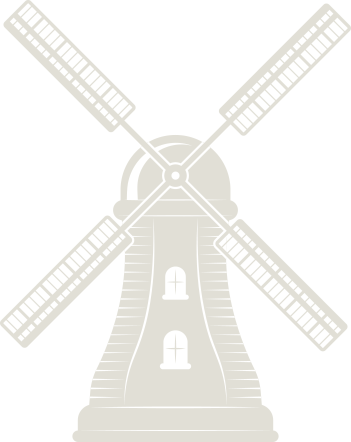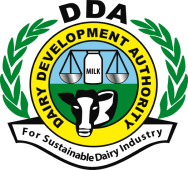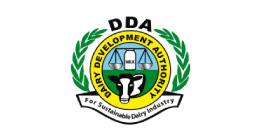Successfully Added to cart
0Successfully Added to cart
0Successfully Added to wishlist
0



Central Regional office is located at DDA head office, Plot 1 Kafu road in Kampala. The region conducts both Development and Regulation services along the value chain as stipulated in the Dairy Industry Act of 1998 and the Dairy (Marketing, Production and Processing of Milk and Milk Products) Regulations of 2003 and as amended in 2006 and 2015.
The region undertakes the above activities in nineteen Districts namely Kampala, Wakiso, Mpigi, Mukono, Kayunga, Buikwe, Buvuma, Mityana, Butambala, Kalungu, Kalangala, Masaka, Lwengo, Bukomansimbi, Sembabule, Gomba, Luwero, Nakaseke and Nakasongola Districts.
STATUS OF THE DAIRY VALUE CHAIN
The dairy sector in the region has undergone significant transformation and the growth is in terms of milk production, collection and bulking, milk transportation, processing, marketing access (export and import) as well as providing market for other regions within the country.
The region produces 30% of the total milk production (2.5b in 2019), it has 34 Dairy processing plants. Regional milk production per cow in the morning is 5.94L, evening 4.35L making a total average of 10.29L per day.
The region has 120 Milk Collection and bulking Centres are; raw milk sales out lets are 400 mainly in areas of Kampala, Wakiso, Masaka, Lwengo, Kalungu, Mukono and Buikwe, 29 active dairy farmers’ cooperatives and numerous supermarkets, groceries, shops that sale milk and milk products, 12 milk stores and depots.
What is done by DDA in the region
The region ensures that milk and milk products sold in the region and beyond are safe for human consumption and that dairy businesses comply with dairy standards and regulations.
This has been realized through registration of dairy businesses, inspection of milk handling premises and road milk tankers, on spot milk testing to verify quality and safety, holding feedback meetings, training and sensitization to allow continuous improvement, surveillance of dairy related activities and enforcement to ensure total compliance.
The regional also provides required critical dairy inputs that include pasture seeds and seedlings, milk handling utensils like milk cans, milking buckets and milk coolers, trainings dairy farmers on how to increase milk production and productivity, value addition among others through Dairy Farmers groups.
South western regional office was operationalized in the Financial Year 2011/2012 with 20 districts which have over time grown to 30 districts as outlined ; Mbarara, Rwampara, Isingiro, Kiruhura, Kazo, Lyantonde, Ibanda, Kamwengye, Kitagwenda, Kyegegwa, Kabarole, Kyenjojo, Ntoroko, Bundibugyo, Sheema, Bushenyi, Mitooma, Buhweju, Rubirizi, Kasese, Bunyangabo, Ntungamo, Rukungiri, Kabale, Rubanda, Rukiga, Kisoro, Kanungu, Rakai, Kyotera.
Cattle population in S.W is estimated at 3.35 million head of cattle with an annual milk production estimated at 1.17 billion litres, with approximately 2.868 million litres per day being produced in the wet season and 1.447 million litres per day being produced in the dry season.
There are 230 dairy cooperatives in the region of which, 169 are active where as 61 ar non active. There are currently a total of 549 Milk Collection Centres (MCCs),with 702 milk coolers and an average installed capacity of 2,043,000 litres .There are currently a total of 104 road milk tankers serving the region on a daily basisi.
There are seven large scale milk processing plants with a total processing capacity of 1.854 million litres per day and over 64 small scale dairy cottages producing mostly yoghurt, ice cream, ghee and cheese.
The S.W region office enjoys good working relations with Local Government structures ie Districts and Sub-counties through out the region,development partners witin the region and beyond ie East African Dairy Development Project/Heifer International,Millenium Villages of the United Nations,the Netherlands Development Organisation (SNV) which collaborates with DDA mainly in areas of roduction and productivity with specific interest on milk quality improvement within and beyond the region.
An M.O.U was signed between SNV and DDA to develop concepts to drive the agenda that are jontly approved and funded by SNV.
Other partners includeNAGRC &DB,CAIIP of Local Government,OWC,NAADS,ABII Trust and any other associations that have a biasy in dairy.
The umbrella farmer organization is Uganda Crane Creamaries Cooperative Union (UCCCU), which is followed by 7 district unions the most active being Ntungamo DFC,there are other associations that were formed to receive tractors under the presidential initiative to address milk production,productivity and dry season feeding.
There are also a number of SACCOs whose membership is largely farmers hence helping to extend affordable credit facilities to them.
Dairy Industry Act (DIA) 1998 enacted by Parliament and DDA is established.
Operations of the Dairy Development Authority began in June 2000.
The Authority has a staff complement to-date
2 core departments; dairy development and regulatory services & Finance and Administration
Introduction
This is an overview on the overall industry status and interventions by DDA in Northern Region. It contains a background of the Northern region, highlight of the dairy industry status, key DDA interventions, conclusion and recommendations.
Background on Northern Region
The northern region consists of the following 17 districts of Lango and Acholi sub regions.
Acholi: Gulu, Omoro, Amuru, Nwoya, Kitgum, Lamwo, Agago, Pader
Lango: Lira, Alebtong, Otuke, Dokolo, Apac, Amolator, Kole , Oyam, Kwania
The region has an estimated 703,786 households and a population of 3,459,173(1,679,486 M; 1,780,851 F), (UBOS)
Staffing
The regional office has members of staff:
1. Dr. Mutumba Herbert (Regional Manager)
2. Magona Nathan Wadiya (Principal Dairy Development Officer)
3. E dwongu Patrick (Dairy Inspector)
4. Ajok Florence (Administrative Officer)
5. Bagire Denis (Driver)
Highlights of Current Status of the dairy sub sector
| No | Parameter | Status | Remarks |
|---|---|---|---|
| 1 | Cattle Population | Estimated 1 million heads of cattle (6% of national herd) | Over 98% Indigenous |
| 2 | Milk Production | Estimated 50 million liters per annum (<2% of national herd) | 35 million Lango, 15 million in Acholi. Potential to produce 150 million because of fertile soils, plenty of grass during wet season |
| 3 | Dairy Farmers’ Groups | 22 registered cooperatives/associations | Mobilisation for registration of more groups is on going |
| 4 | Model Farms . | Gulu Country Dairy Farm | The farm is a training center on modern dairy technologies and adds value to milk by processing yoghurt, ice cream and ice cream |
| 5 | Milk collection, Transportation and Marketing. | 8 DDA owned MCC’s in Lira, Gulu, Dokolo Kole and Alebtong districts. There are 23 milk coolers in the region 2 milk tankers plying Lira-Apac route | Lira is functional, the rest are prioritised for phased renovation and equipping. |
| 6 | Milk Processing | 4 small scale milk processors, all in Gulu, combined capacity 7,000 lts. | |
| 7 | Other Actors in The Dairy Value Chain | NAADS/OWC, OPM (PRDP, NUSAF II), NAGRC&GB, NARO, District Local Governments, Development Partners |
Highlights of Interventions by DDA
1. Enhancing knowledge and skills of dairy stakeholders in dairy feds and feed preservation, labour saving technologies,
2. Promotion of formation/ strengthening of dairy farmers’ groups;
From 2017 to date, a total of 13 new dairy farmers’ cooperatives /associations have been formed in the region.
3. Promotion of hygienic milk production, transportation, marketing and reduction of post harvest losses
DDA distributes milk handling equipments to members of dairy farmers’ cooperatives and associations.
4. Strengthening Quality assurance and Regulation
DDA carries out the following in the above respect:
(i) Inspection and registration of milk handling premises and equipment
(ii) Enforcement of dairy regulations
(ii) Surveillance of milk markets for compliance
The National Dairy Laboratory is the testing unit of the Dairy Development Authority, and supports the regulation and development of Dairy Industry. The Laboratory centrally located in UMA show Grounds Lugogo, Kampala District, has steadily grown to include regional laboratories in South Western, North Eastern, Northern and Midwestern Regions. The Laboratory also operates mobile laboratories in Central and Southwestern regions.
An ISO/IEC 17025: 2017 General requirements for competence of testing and calibration laboratories standard implementing unit, the National Dairy Laboratory provides testing services for milk and milk products including; pasteurized milk, UHT milk, powder milk, cheese, yoghurt, fermented milk, cultured milk, ice cream, milk ices, sweetened condensed milk, evaporated milk, casein, whey milk products, raw milk, ghee, butter oil, butter and cream; following the Uganda Standards, East African Standards and International Standards. The results provided inform of Certificate of Analysis and test result reports, are utilized for inspection, registration, product development, surveillance, certification and standards development with UNBS and baseline studies. The laboratory clients include DDA Inspectors, Development officers, factories, cottages, and milk transporters, customs officers at border points, dairy farmers and consumers.
The National Dairy Laboratory also conforms to international standards of metrological traceability by participating in internationally recognized proficiency testing and Inter-laboratory comparison schemes in Uganda, East Africa, Germany, and Italy. The Microbiology section has registered analysis success with Enterobacteriaceae, Coliforms, Yeasts & Moulds, Escherichia coli, Staphylococcus aureus, Salmonellae spp., Listeria monocytogenes and Spore formers. While the Physiochemical section has registered the following test parameters; Butter fat-routine method, Fat-reference method, Density, Solids-non-fat, Freezing point-reference method, Added water-reference method, Total Ash, pH, Titrateable acidity, Moisture/total solids, Lactose, Total sugar, Milk adulterants, Veterinary Drug residues, Aflatoxin M1 and milk compositions.
The Laboratory structure allows for a fast turnaround time, enabling trade in exports and imports, regulation and innovation in the dairy industry.
Price Schedule for Microbiology Download
Customer feedback form,
Please download the feedback form below, fill and send back
Background
Entebbe Dairy Training School (EDTS) is a dairy training institution under DDA. Government of Uganda in the financial year 2013/14 allocated funds to revived EDTS in order to skill and train dairy stakeholders along the dairy value chain in milk quality and value addition. The institution is located at Old Airport Village, Kigungu Division B, Entebbe Municipality. EDTS is the only government dairy training school in the country.
Purpose of the institution
1. To arch out competent dairy stake holders with hands on skills in milk quality and value addition.
2. To train dairy stakeholders in increased milk production and productivity.
3. Improvement of Human Resource capacity for the development and regulation of the dairy sector.
Objective
To produce highly competent stakeholders with hands on skills in milk production, handling and processing in order to promote dairy farming as a profitable business.
4.0 Target audience:
The training targets Dairy stakeholders along the value chain e.g. dairy farmers, Milk Collection Center (MCC) operators, milk transporters, Cottage operators and value addition entrepreneurs.
Management of the institution
The institution is managed by DDA Board, DDA Management and the School Staff headed by the Principal Tutor
Modules offered at the School
The following modules are offered at the School with each module taking a period of one week.
1. Milk Quality Control and Quality Assurance,
2. Small scale milk processing in Yoghurt Production, Ice Cream Production, Cheese Production, Butter and Ghee Production.
3. Dairy Farm Production and Management
4. Dairy Business Management
Activities at the School
1. Skilling in dairy value addition
2. Hands on training.
3. Field Excursion
4. Bench marking
5. Monitoring and Evaluation (M&E)
Facilities at the School;
1. Well-equipped milk processing factory for demonstration.
2. Well-equipped modern laboratory to test milk and milk products.
3. Good hostel accommodation for both males and females with modern washrooms, kitchen, dining and a sitting room.
4. Well-equipped computer laboratory with a running wifi.
5. Out of class recreation activities e.g. Volleyball, Scrabble, Table tennis, Net ball, Chess etc
Key Partners
1. SNV
2. Heifer International
3. AFRISA
4. Dairy Cooperatives
5. Dairy Farmers
Eligibility for admission
Ability to read and write in English
The Eastern Regional Office coordinates dairy development and regulatory activities in the Eastern region of Uganda comprising of the sub regions of Busoga and Bukedi.
The regional office is currently housed at DDA Headquarters in Kampala. The Eastern Regional Office coordinates 18 districts, namely Jinja, Mayuge, Kamuli, Buyende, Luuka, Iganga, Bugiri, Namayingo, Busia, Tororo, Namutumba, Kaliro, Butaleja, Kibuku, Budaka, Butebo, Pallisa and Bugweri.
The region has a human population of 6,303,200, and more than half are employed in subsistence agriculture. The cattle herd size is 1,046,217, out of which 5% are exotic crosses, while the other 95% are local breeds. The region is considered a milk deficit region as it accounts for only 9% of the national milk production estimated at 130.9 m litres per year.
The region has 18 dairy farmer cooperatives/associations. There are 16 rural milk collection centres with a total chilling capacity of 39,000 litres per day. There are approximately 157 raw milk sales outlets; 37 coolers (in Kamuli, Buyende, Jinja, Iganga, Bugiri, Busia, Malaba, Pallisa, Kibuku and Budaka) with total chilling capacity of 69,600 litres and 120 freezers (mainly in Jinja, Iganga, Bugiri, Tororo, Busia and Malaba urban centres.
Farm gate milk prices ranges from UGX 800-1,000 per liter and retail raw milk prices range from UGX 1,200-1,500 per liter.
Midwestern region currently covers the greater Bunyoro, some parts of Buganda & west Nile totaling to 22 Districts. These are ;Masindi, Bulisa, Hoima, Kyankwanzi, Kiboga, Mubende,Kakumiro,Kikube,Kasanda,Kagadi,Kibale,Kiryandongo,Pakwach,Obongi,Nebbi,Zombo,Arua,Maracha,Koboko,yumbe,Moyo.,Adjumani,Terego and Amuru This region contributes about 270 million litres of milk which is about 10% of Uganda’s annual milk production. Kiboga, Kyankwanzi, Mubende, Hoima, Masindi, Kakumiro, Kiryando, & Kikube are the main milk producing Districts of the region.
The region has approximately 90 milk collection centers with an installed daily chilling capacity of 1,140,200L of milk with more than half of these located in Kiboga, Kyanwanzi and Mubende District. There are about 60 road milk tankers that evacuate milk from this region majority of which are privately owned. The region has two milk bulking centers located in Mubende and Kyankwanzi belonging to Brookside Ltd and have an installed capacity of 50,000L Marketing and Distribution of milk is mainly through organized dairy farmer’s cooperatives, privately owned milk collection centers and raw milk sales outlets. There is a great opportunity for investors to add value and establish a milk processing plant in the region and there is a big aggregate demand for milk products in Masindi, Kiryandongo, Hoima and Bulisa due to increased disposable income among the population from oil exploration activities in Albertine region.
The region conducts its activities based at head office due to absence of an established regional office and is currently headed by Annet Kyomuhangi –the Regional Manager


